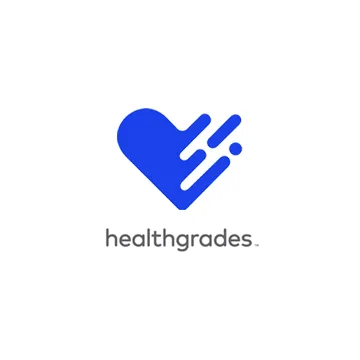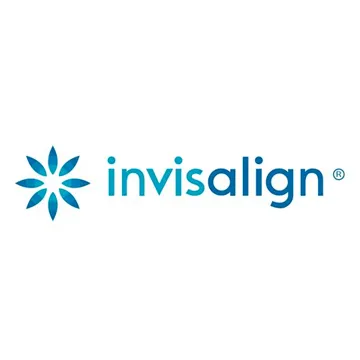Specialty Dentistry
Let’s Talk About Sleep Apnea: How Do You Know You Really Have It?
You might think loud snoring is just a nuisance, or something your partner complains about in the morning. But when it comes with daytime sleepiness, trouble concentrating, or waking up gasping for air, it’s not just snoring. It could be sleep apnea, a condition that often goes undiagnosed for years.
At Prestige Dental, we see firsthand how sleep-disordered breathing can sneak into your life quietly, leaving you exhausted and unaware. If you’ve been wondering whether your snoring means something more, or you’ve heard about sleep apnea but aren’t sure how people find out they have it, this blog is for you.
Let’s walk through what diagnosis actually involves, what signs to look out for, and why your dentist might play a bigger role in your sleep than you think.
What Are the Warning Signs of Sleep Apnea?
Sleep apnea can present differently for different people, but a few telltale signs tend to show up consistently:
- Loud, chronic snoring
- Gasping or choking sounds during sleep
- Waking up frequently to use the bathroom
- Morning headaches
- Dry mouth or sore throat upon waking
- Excessive daytime sleepiness
- Difficulty concentrating or memory issues
- Irritability or mood changes
It’s easy to brush off snoring or blame poor sleep on stress. But when these symptoms persist, and especially when your partner notices you stop breathing during the night, it’s time to take them seriously.
One tricky thing about sleep apnea is that you don’t always know what’s happening when you’re asleep. Many people only realize something is wrong when they start feeling unusually tired during the day or their loved ones express concern.
How Sleep Apnea is Diagnosed: From Suspicion to Certainty
So, how do you go from suspecting sleep apnea to actually getting a diagnosis? Here’s what that process looks like:
1. The Initial Conversation:
The first step usually starts with a healthcare provider, often your primary doctor or your dentist. If you’re experiencing common symptoms, they might ask a few screening questions or ask you to fill out a sleep questionnaire like the STOP-BANG or Epworth Sleepiness Scale. These help assess the likelihood of a sleep disorder.
At Prestige Dental, if we suspect sleep apnea based on your dental exam or what you share with us, we’ll walk you through the next steps. Many signs of sleep apnea show up in the mouth—such as teeth grinding (bruxism), a scalloped tongue, or an unusually small jaw—which is why dentists are often the first to notice a problem.
2. Sleep Study (Polysomnography or Home Test):
To officially diagnose sleep apnea, you’ll need a sleep study. There are two main types:
- In-lab Polysomnography (PSG): You’ll spend the night in a sleep clinic where your breathing, oxygen levels, heart rate, and brain activity are monitored. It’s comprehensive and often recommended for people with more severe symptoms or other health issues.
- Home Sleep Apnea Test (HSAT): A simpler version that you do from home. It records breathing patterns, airflow, and oxygen saturation. It’s less comprehensive but a convenient starting point for diagnosis.
The sleep study reveals your Apnea-Hypopnea Index (AHI), which measures how many times you stop or reduce breathing per hour. Based on this, sleep apnea is classified as:
- Mild: 5–14 events per hour
- Moderate: 15–29 events per hour
- Severe: 30+ events per hour
3. Confirming the Diagnosis:
Once the results are in, a sleep specialist will interpret the data and confirm the diagnosis. If you have sleep apnea, they’ll discuss treatment options based on the severity and your specific symptoms. Treatment can include lifestyle changes, CPAP machines, oral appliances, or in some cases, surgery.
How Can I Fix Sleep Apnea Naturally?
The good news is that there are lifestyle changes that can improve or even resolve mild sleep apnea. While severe cases usually require medical intervention, here are natural steps that may help:
- Lose excess weight: Fat deposits around the neck can narrow your airway and increase the risk of apnea. Even a modest weight loss can improve symptoms.
- Sleep on your side: Sleeping on your back allows the tongue and soft tissues to collapse backward. Side sleeping can help keep the airway open.
- Avoid alcohol and sedatives: These relax the muscles in your throat, making airway collapse more likely.
- Quit smoking: Smoking inflames the upper airway and increases fluid retention, which can worsen sleep apnea.
- Use a nasal decongestant: If nasal blockage is contributing to your breathing issues, treating congestion might reduce symptoms.
For some, an oral appliance from your dentist can be an effective, non-invasive solution. These custom-fitted devices help reposition the jaw or tongue to keep your airway open while you sleep. At Prestige Dental, we can help fit and monitor these appliances as part of your treatment plan.
Can Skinny People Have Sleep Apnea?
Absolutely. While being overweight is a risk factor, it’s not the only one. Thin individuals can—and do—experience sleep apnea, especially if they have certain anatomical or genetic predispositions.
Here’s why someone without extra weight might still struggle with sleep apnea:
- Narrow airway structure: A naturally small or recessed jaw, enlarged tonsils, or a high tongue position can obstruct airflow, even in lean individuals.
- Genetics: Family history plays a role in airway shape and muscle tone during sleep.
- Hormonal imbalances: Conditions like hypothyroidism or polycystic ovary syndrome (PCOS) can increase the risk.
- Neuromuscular conditions: These can impact the brain’s ability to control breathing during sleep.
So, if you're slim but still have symptoms like daytime fatigue, loud snoring, or choking during sleep, don't dismiss the possibility of sleep apnea. Body type doesn’t always tell the full story.
Why Your Dentist Might Be the First to Notice
It might surprise you, but your dental visits could offer early clues to sleep apnea. At Prestige Dental, we check more than just your teeth—we also look at your bite, jaw position, tongue, and soft palate. Here are a few things that tip us off:
- Worn-down teeth from grinding
- A small jaw or recessed chin
- Enlarged tongue or tonsils
- A high, narrow palate
If we see signs that suggest you might be dealing with obstructive sleep apnea, we won’t leave you in the dark. We’ll help connect you with a sleep specialist and even collaborate with them to design your treatment, whether it’s a CPAP alternative or an oral appliance you wear at night.
Don’t Wait for Sleep to Get Better On Its Own
Sleep apnea is one of those conditions that tends to get worse if ignored. And the effects go beyond poor sleep. Left untreated, sleep apnea increases the risk of high blood pressure, heart disease, diabetes, stroke, and even depression.
If you suspect you might have it—or someone close to you does—it’s worth investigating. Diagnosis doesn’t mean scary machines or big changes. It means you’ll finally have answers. It means you’ll sleep better, think more clearly, and feel like yourself again.
At Prestige Dental, we’re here to help you start that process. Whether it begins with a conversation, a screening, or a referral for a sleep study, we’ll be with you at every step.
Don’t sleep on this. Book a consultation with our team at Prestige Dental today and take the first step toward better sleep and better health.
















